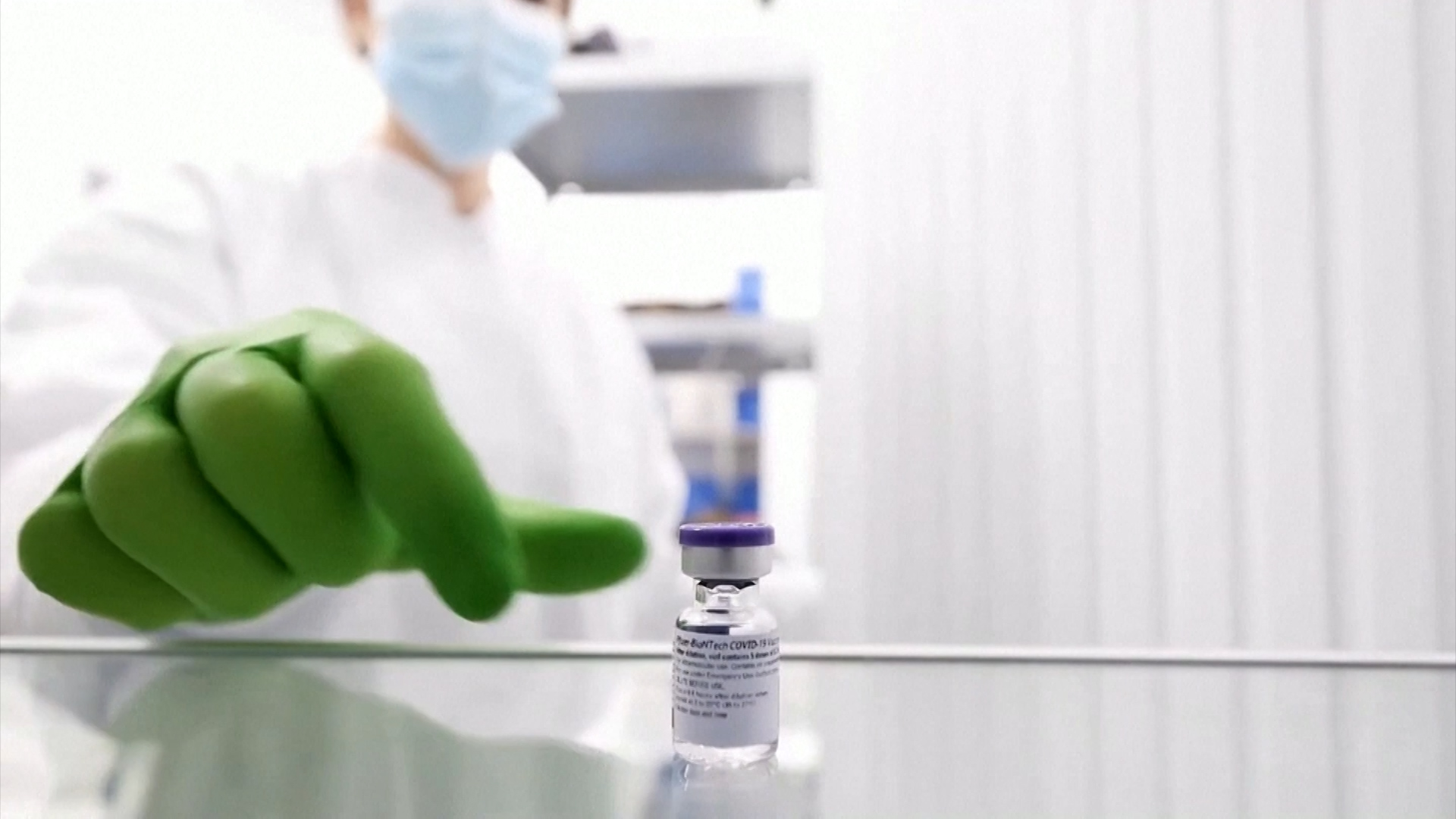
Vaccination programs look set to be rolled out widely in the new year. /Reuters
Vaccination programs look set to be rolled out widely in the new year. /Reuters
UK vaccine manufacturer AstraZeneca is set to begin a new trial before the end of the year in which it will combine a dose of its vaccine with the Russian Sputnik-V jab.
Scientists believe that using two different types of vaccine together could be more effective in fighting the virus than vaccinating people with two doses of the same jab.
The news was revealed on Friday by Russia's sovereign wealth fund, while AstraZeneca also released a statement confirming the news.
The firm said it will soon begin exploring with Russia's Gamaleya Institute, which developed Sputnik V, whether two common cold virus-based vaccines could be successfully combined.
The British-made AstraZeneca vaccine, developed in partnership with Oxford University, and the Russian Sputnik vaccine are similar because they both contain genetic material from the Sars-CoV-2 spike protein.
They work differently from the Pfizer-BioNTech vaccine, which has started to be rolled out in the UK.
The move is likely to be seen in Moscow as a long-awaited vote of confidence by a Western manufacturer in Sputnik V.
Its Russian developers say clinical trials, still under way, have shown it has an efficacy rate of more than 90 percent, higher than AstraZeneca's own vaccine and similar to U.S. rivals Pfizer and Moderna.
Watch: Iolo ap Dafydd reports on the global race for a vaccine:
02:41

Some Western scientists have raised concerns about the speed at which Russia has worked, giving the regulatory go-ahead for its vaccines and launching large-scale vaccinations with Sputnik V before full trials to test its safety and efficacy have been completed.
The prospective tie-up comes as AstraZeneca, once seen as a front-runner in the vaccine race, prepares to carry out further tests on the efficacy of its jab. In interim late-stage data, its effectiveness was shown overall to be 70.4 percent. Its trials showed that two standard doses gave 62% protection, but when patients received a half dose followed by a standard dose, this rose to 90 percent. The firm is conducting further tests to confirm its findings as the study group was quite small. This could potentially slow its rollout.
It is not known how many doses of the AstraZeneca and the Sputnik jabs would be needed for a combined approach.
Source(s): Reuters

